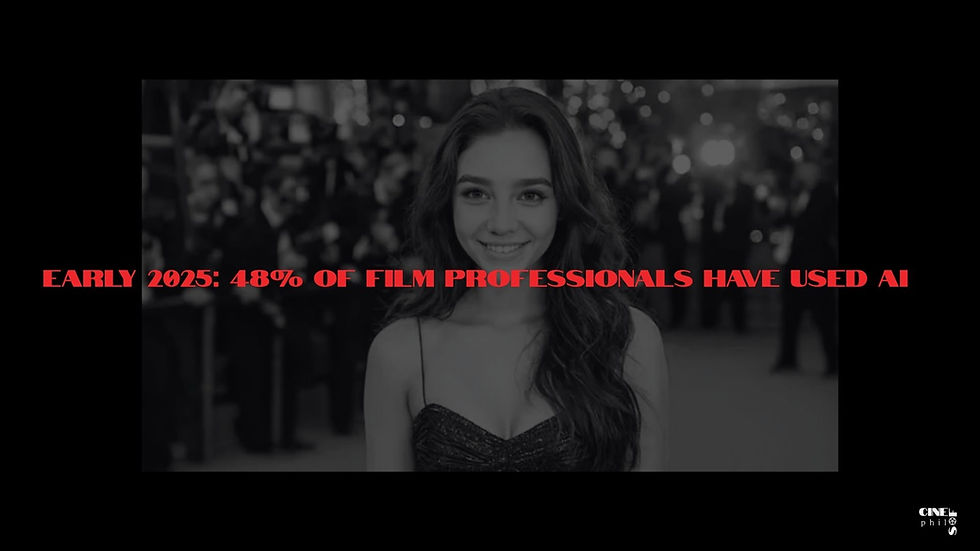Square Subculture Shutdown: Birmingham's Battle for its Beats
- Sofia R. Willcox

- Mar 25, 2025
- 4 min read
On Tuesday (March 25th), to the surprise of many Brummies, The Square shopping centre abruptly closed, leaving shop owners and businesses in the dark about the reason. They were forced to shut their doors after a fire risk assessment, with no clear reopening date. However, this isn't an isolated case—it’s just the latest to join the ranks of The Crown and the Electric Cinema, both of which were permanently shut down within a year. Another blow in what feels like an ongoing act of cultural vandalism.
I remember countless weekends hanging out with my clique. Music was our connection, the thread that tied us together despite our different backgrounds and age gaps. We were always listening, making playlists, and swapping song or artist/band stickers—sometimes even playing and singing. They were the ones who introduced me to these stores, shaping my experience as a Brazilian immigrant in the UK. HMV, Forbidden Planet, and Oasis Market were love at first visit. We would spend hours hunting for music treasures—whether on T-shirts, accessories, posters, CDs, or vinyl. Sometimes, I’d wander into the DVD section, searching for cinematic gems, rare findings from outside the anglophone world.
The Square is home to more than 30 businesses, including shops, pubs, and restaurants—among them a subsidiary of HMV and the iconic Oasis Market.
Although this His Masters Voice is just a branch, the retail chain itself has a century-long legacy, founded by British composer Sir Edward Elgar. It’s worth noting its turbulent history, especially its 2018 fall into administration and the subsequent rescue by Canadian entrepreneur Doug Putman. HMV has witnessed the evolution of how we consume music, from jukeboxes and radios to boomboxes, Walkmans, MP3s, CDs, and the ever-reviving vinyl culture. It played a key role in the rock and roll boom of the 1950s and 1960s, surviving two world wars and a pandemic—though it continues to battle against the rise of streaming and the democratization of music through social media. Beyond being a retail store, HMV originally began as a record label and sound equipment company with a few releases and iconic visits. The rest is history.
On the other hand, Oasis Market has been an immense indoor hub for independent sellers since 1972, home to alternative and vintage small businesses of all kinds. A true underground spot, filled with hidden gems you wouldn’t easily find anywhere else. Today, it faces a tough battle against major retail chains and bargain e-commerce stores. The world is becoming increasingly uniform—through mass production or cosmetic trends that diminish individuality—contradicting what both Oasis and HMV have always celebrated. Ironically, this is happening in an era that claims to champion individualism and diversity.
The sudden closure of The Square shopping centre feels like uprooting a plant from its soil. It’s still unclear whether this is temporary or permanent. Even though the conditions weren’t the best—sun-bleached pictures of local pop culture icons, washed out and fading—it was still a place that mattered. And even though it may go unnoticed by the wider public, unless you're immersed in subculture, it’s a significant blow. It erases a subculture that exists within the larger culture, a community—let alone the livelihoods of the people who worked there. Studies show how deeply beneficial music is, both for those who create it and those who consume it. It shapes identities, forms connections, and, for many, is a lifeline.
My father, who never had the chance to experience these places but remains my major music dojo back home, taught me that music is the pulse of life. It was his influence that first made me fall in love with music as a kid in Brazil, introducing me to so many gems. And now, as these landmarks fade, I’ll never be able to share with him the breath and touch of these treasures.
I am aware I am not the only one who holds memories within these places. But how long until profit-driven redevelopment takes precedence over them? It’s a form of cultural vandalism, while art remains an antidote to a mentally ill society—a form of resistance that’s still evolving. However, the extinction of this tribe in which my eclectic soul ended up partially fitting and relating to in many ways remains felt.
Birmingham was chosen to host the First World Screen Tourism Summit this summer, an event that will shine a spotlight on the growing trend of ‘set-jetting,’ where tourists flock to locations featured in their favourite films and TV shows. But if the city’s cultural landmarks are decaying, what will be left for these visitors to see? A washed-out culture or the vanishing of Black Sabbath statues? Once, Birmingham was the heart of a symphony of metalworking, its sounds echoing through cobbled lanes alongside a diverse mix of music from all walks of life. Nights were alive with vibrant lights, luxury cars, and pulsating music beats filling the streets. Yet, as dawn breaks, the city slips into sleep—its streets swallowed by bulls, darkness, silence, and the occasional wail of sirens or honking horns.
This is available on Outside Left: https://outsideleft.com/main.php?updateID=3485




Comments